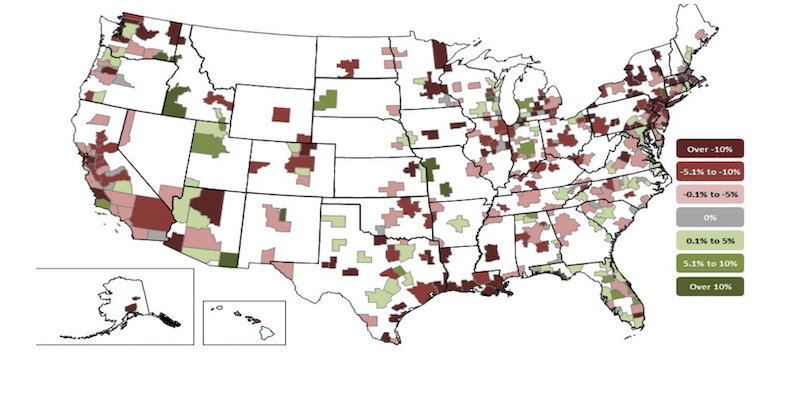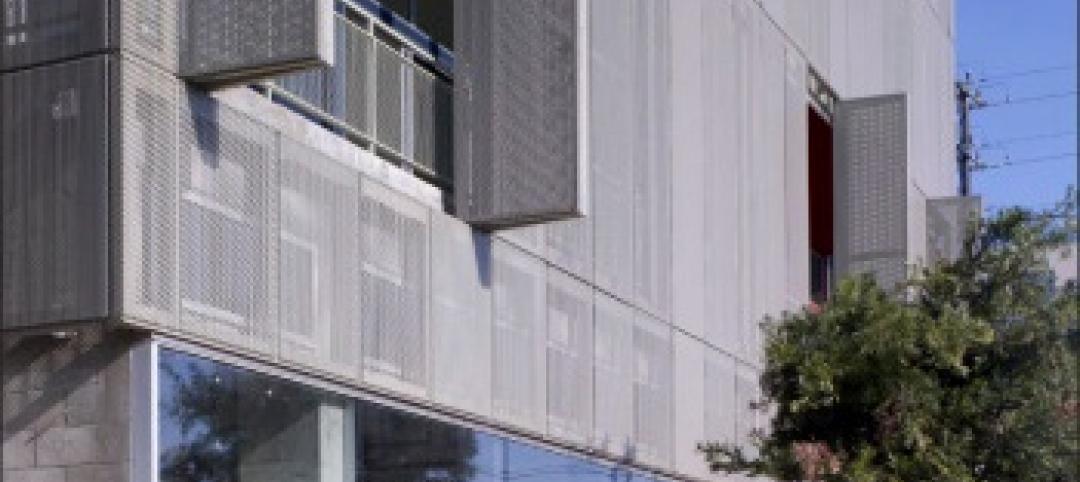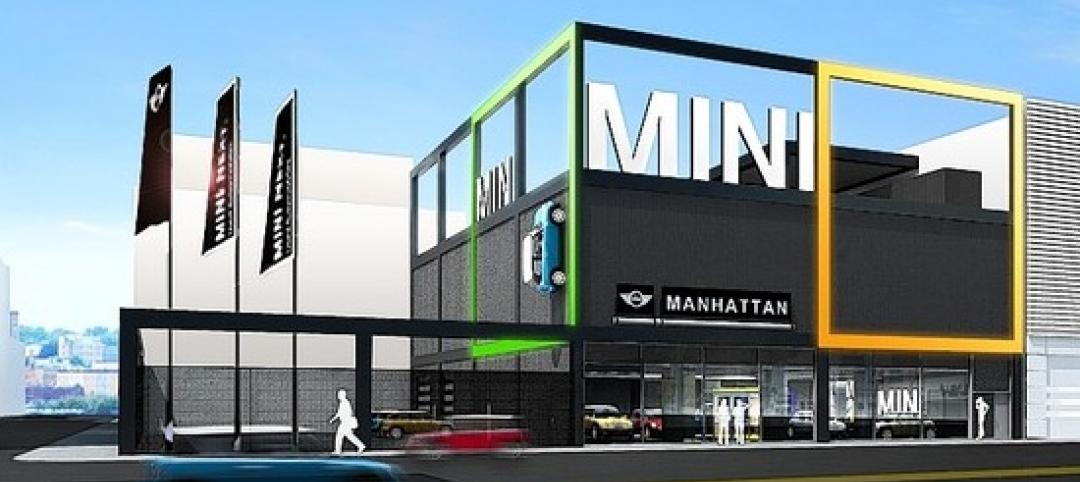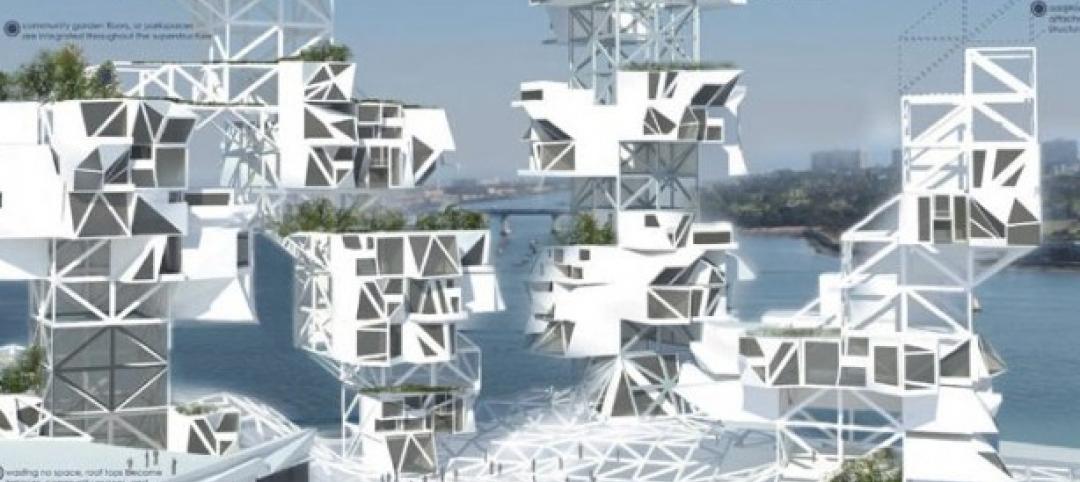Construction officials outlined a series of steps public officials and the construction industry should take to address the impacts of the built environment on climate change. The new initiative from the Associated General Contractors of America is designed to lessen the carbon footprint of the built environment while also making the process of building projects even more efficient.
“The construction industry is the delivery vehicle for building a greener, more climate friendly future,” said Stephen E. Sandherr, the association’s chief executive officer. “Finding a way to ensure that what our members build is more efficient will have a significant impact on climate change.”
Sandherr noted that construction activity accounts for less than two percent of greenhouse gas emissions in the United States. Meanwhile, the built environment accounts for approximately one-third of greenhouse gas emissions. As a result, while the new initiative includes steps construction firms can take to operate more efficiently, the bulk of the effort is focused on pushing for public and private project owners to build more efficient projects and discovering how we can also support them in that process.
Among the measures outlined in the new initiative include calling for a national strategy to invest in physical infrastructure that will make communities more resilient. The association is also calling for an increase in investments and funding opportunities for public and private infrastructure to build more efficient highways, water plants and other facilities.
Public officials should also invest in modernizing federal buildings to make them more efficient. The association is also calling for expanding tax incentives and deductions to encourage the private sector to build more efficient buildings. And the group is calling for expedited permitting for projects that improve efficiency and reduce greenhouse gas emissions.
Association officials also identified steps contractors can take to operate more efficiently. This includes encouraging equipment manufacturers to improve the fuel efficiency of their equipment, helping firms learn how to reduce equipment idling and sharing information about industry innovations like solar powered job site trailers and energy efficient job site lighting.
The new initiative was crafted by a special climate change task force for the association created earlier this year. Representatives from 18 different member firms participated in the task force meetings and helped craft the recommendations outlined in the initiative. “You can’t wish for a greener future, you have to build it,” said Les Snyder, the president of Shikun & Binui America in Pittsburgh and the chair of the association’s climate change task force.
Click here to view details of the association’s new climate change initiative.
Related Stories
| May 3, 2011
What green building types are most likely to get noticed?
The general public isn’t terribly aware of green buildings in their area, according to a TD Bank survey of 1,510 consumers within major metro markets in its Maine to Florida footprint. The bank conducted the poll to better understand consumers’ knowledge of green or sustainable buildings. According to the poll, these green buildings are most likely to get noticed.
| May 3, 2011
Green building materials in U.S. to exceed $71 billion in 2015
Demand for green building materials is projected to expand 13.0% annually to $71.1 billion in 2015, slightly outpacing the growth of building construction expenditures over that period, according to a new study from The Freedonia Group, Inc., a Cleveland-based industry market research firm. While the rising use of green materials will support gains, the most important driver for demand will be the expected rebound in the construction market.
| Apr 26, 2011
Ed Mazria on how NYC can achieve carbon neutrality in buildings by 2030
The New York Chapter of the American Institute of Architects invited Mr. Mazria to present a keynote lecture to launch its 2030 training program. In advance of that lecture, Jacob Slevin, co-founder of DesignerPages.com and a contributor to The Huffington Post, interviewed Mazria about creating a sustainable vision for the future and how New York City's architects and designers can rise to the occasion.
| Apr 22, 2011
GSA testing 16 emerging sustainable technologies, practices
The GSA is testing and evaluating 16 emerging sustainable building technologies and practices in select federal facilities under its Green Proving Ground program. Testing will determine the most effective technologies that may then be replicated on a wider-scale basis throughout the GSA inventory with the goal of transforming markets for these technologies.
| Apr 19, 2011
Is a building sustainable if it kills birds?
Migratory birds were flying into the windows and falling, dead or injured, to the foot of the LEED-Platinum FBI building in Chicago. The FBI building isn't the only LEED-certified structure to cause problems for migratory birds, however. Some of the more than 33,000 LEED-certified buildings in the U.S. use large amounts of glass to bring in natural light and save on energy—and all that glass can confuse birds.
| Apr 19, 2011
Philadelphia opens massive, LEED-Silver recycling center
The 60,000-square-foot single-stream material recovery facility (MRF) in Philadelphia will process around 20,000 tons of newspaper, cardboard, aluminum, glass, and plastic every month, and will simplify the collection of recyclable materials and increase recycling rates by 50%.
| Apr 19, 2011
AIA announces top 10 green Projects for 2011
The American Institute of Architects Committee on the Environment announced its Top 10 Green Projects for 2011. Among the winners: Cherokee Studios in Los Angeles, the Department of Energy's National Renewable Energy Laboratory in Golden, Colo., and the Vancouver Convention Centre West in Vancouver, British Columbia.
| Apr 19, 2011
BMW dealers driving up sustainable construction in NYC
BMW North America will invest $60 million in two green dealerships in Manhattan. The new stores, which are being designed to cut energy use by 25%, reflect the auto company’s effort to reposition itself as environmentally conscious.
| Apr 19, 2011
15 mind-blowing skyscrapers
Our friends at Inhabitat have rounded up 15 incredible buildings—from underground cities to vertical farms to bio-fuel power plants and skyscrapers.












